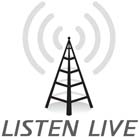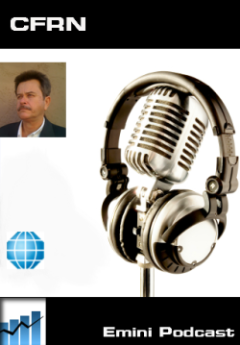Definition Of A Professional Trader
 December 22, 2012 at 11:55 PM
December 22, 2012 at 11:55 PM (AMZN)(TESLA)(SODA)(FB)(AAPL)
Professional Trader Defined
I hear the term "Professional Trader" thrown around quite a bit. Pundits seem to enjoy pointing out the foibles of the retail trader while facing Wall Street thrice daily and bowing down to the brilliance and elegance of the professional trader.
According to the I.R.S. there is no true legal definition of a PT, so I turned to my dear friend the internet to see what the general consensus was. You might want to jot this down... (so you can burn it later)
My Google Search returned 383,000 results. In the interest of brevity I chose to share just a few...
"I'd say any institutional trader, as well as retail traders with an annual income at or exceeding U.S. $550,000 and/or net worth greater than U.S.$ 3 million."
"The professional trader may have a top-down or bottom-up perspective on markets (developing ideas from big economic trends or from individual company and sector results), but they have a framework for how to think about markets. Inexperienced traders lack such a framework."
"You become a professional trader when you "go all in," deciding you'll accept whatever results you find yourself able to achieve."
"A professional trader is a person who is paid to undertake a specialized set of tasks and to complete them for a fee. The traditional professional were doctors, engineers, lawyers and commissioned military officers. A professional trader is also like them."
"Professionals want it more. Working hard and producing are different. A professional works with a purpose and a goal in mind. They know that they have to do the little things in order to put themselves in a position to win. It is easier for them to prepare, be discipline, follow their trading plan because they are tired of being on the other side."
______________________________________________________________
Are we clear now? Or did my friend the internet make your head spin like Linda Blair?
Some of my associates, whom I hold in very high regard, have definitions so silly I refuse to put them down. The point of this post is to reach out to the lowly "retail trader" and offer you some insight and assurance as to who you really are as a trader and what it will require to enter the hallowed halls of the Professional.
Top 10 Signs You May Be A Professional Trader
- Have I received a proper education from someone I consider to be a professional?
- Do I have the proper tools to perform the job?
- Am I confident in my ability to assess market conditions?
- Do I have a written business plan?
- Do I have a written trading plan?
- Do I follow both plans consistently without deviation?
- Am I properly capitalized in accordance with both written plans?
- Do I posses a minimum of 3 high probability setups?
- Have I removed emotions from my decision making process?
- Do I insure each trade by placing a hard stop, server side?
If you were able to answer YES to all 10 questions, you are a Professional Trader. You may have noticed that the size of your account is not a criteria. I have seen men with very large accounts who did not behave like a professional and as a result, they no longer own a trading business.
If you only trade 1 Emini Contract at this stage of your career, but answered YES to all of the above, you're a Professional. If you trade 100 Emini Contracts and could not honestly answer YES to all of the above, you are NOT a Professional. (sorry)
This list of course, is based on my own opinion and working knowledge of "trading as a business". I have a unique vantage point and have seen many traders come and go over the years. Adhering to this list will not guarantee your success, it will however, make success at least a possibility.
Since many who offer their opinion on this subject do want to make it about "size", let's go there.
If you are a 10 contract trader in the S&P500 Emini and average 2 points per day, President Obama considers you to be one of the wealthiest Americans. Obama defines "the wealthiest Americans" as single taxpayers earning more than $200,000 a year and couples with annual earnings in excess of $250,000. Let's do the math of the 10 contract trader -
10 Contracts X 2 Points = $1,000 per day (average)
$1,000 per day X 20 trading days per month = $20,000 per month (average)
$20,000 per month X 12 months = $240,000 per year (average)
So if we want to base your professional status on size or earnings, there you have it. Just 2 points net per day on average, as a 10 contract trader, makes you one of the Wealthiest Americans. People are sleeping in the streets, refusing to work and urinating on private property because of people like you. And to think, all you wanted to do was earn a living. Never forget, "To whom much is given, much is required". Still sure you want to be a Professional Trader?
Tomorrow: 2 Points Defined
As opportunities unfold we'll keep you posted.
Questions?
Call us toll free @ 866-928-3310 during normal business hours.
After Dark - email support@cfrn.net or call 415-857-5654
5 DAY FREE TRIAL










Reader Comments (1)
Yeah!!! what a post!.I am very very happy to read this.The definition of a professional trader is so much good.A lot of thanks for sharing it with us.